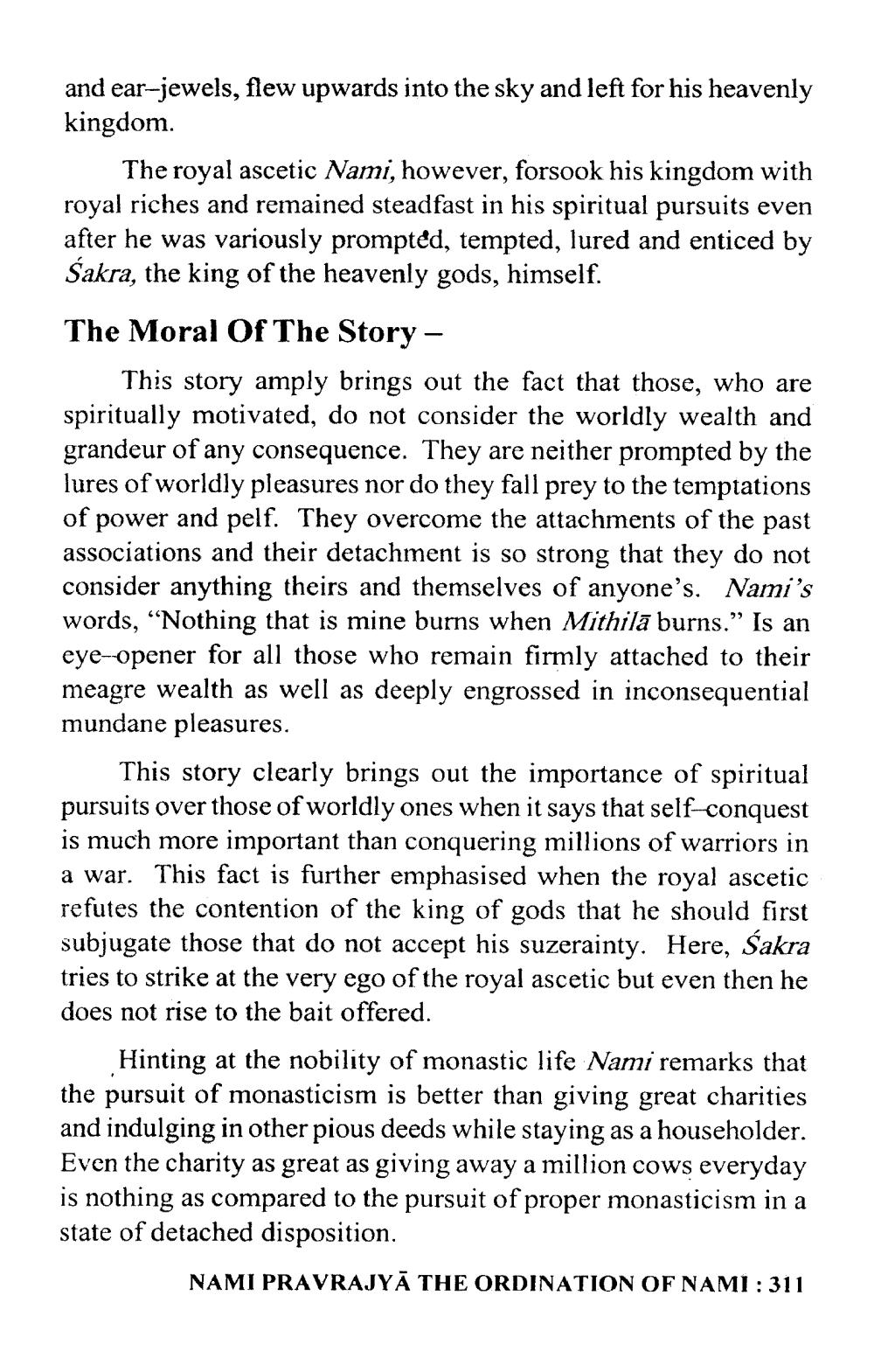________________
and ear-jewels, flew upwards into the sky and left for his heavenly kingdom.
The royal ascetic Nami, however, forsook his kingdom with royal riches and remained steadfast in his spiritual pursuits even after he was variously prompted, tempted, lured and enticed by Sakra, the king of the heavenly gods, himself.
The Moral Of The Story -
This story amply brings out the fact that those, who are spiritually motivated, do not consider the worldly wealth and grandeur of any consequence. They are neither prompted by the lures of worldly pleasures nor do they fall prey to the temptations of power and pelf. They overcome the attachments of the past associations and their detachment is so strong that they do not consider anything theirs and themselves of anyone's. Nami's words, “Nothing that is mine burns when Mithilā burns.” Is an eye-opener for all those who remain firmly attached to their meagre wealth as well as deeply engrossed in inconsequential mundane pleasures.
This story clearly brings out the importance of spiritual pursuits over those of worldly ones when it says that self-conquest is much more important than conquering millions of warriors in a war. This fact is further emphasised when the royal ascetic refutes the contention of the king of gods that he should first subjugate those that do not accept his suzerainty. Here, Śakra tries to strike at the very ego of the royal ascetic but even then he does not rise to the bait offered.
Hinting at the nobility of monastic life Nami remarks that the pursuit of monasticism is better than giving great charities and indulging in other pious deeds while staying as a householder. Even the charity as great as giving away a million cows everyday is nothing as compared to the pursuit of proper monasticism in a state of detached disposition.
NAMI PRAVRAJYĀ THE ORDINATION OF NAMI: 311




